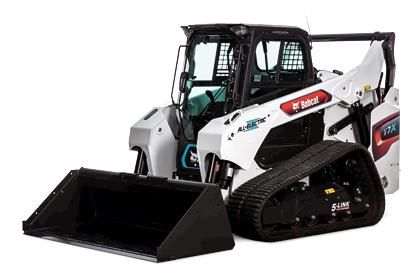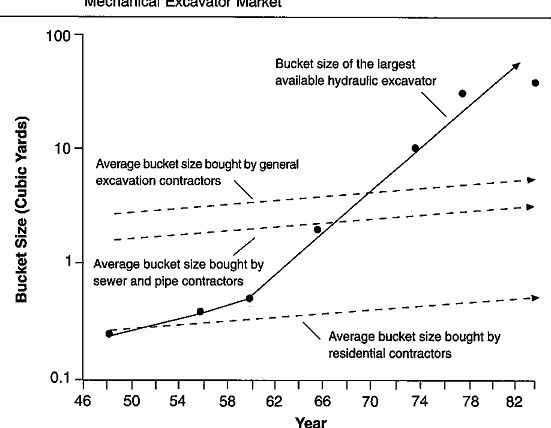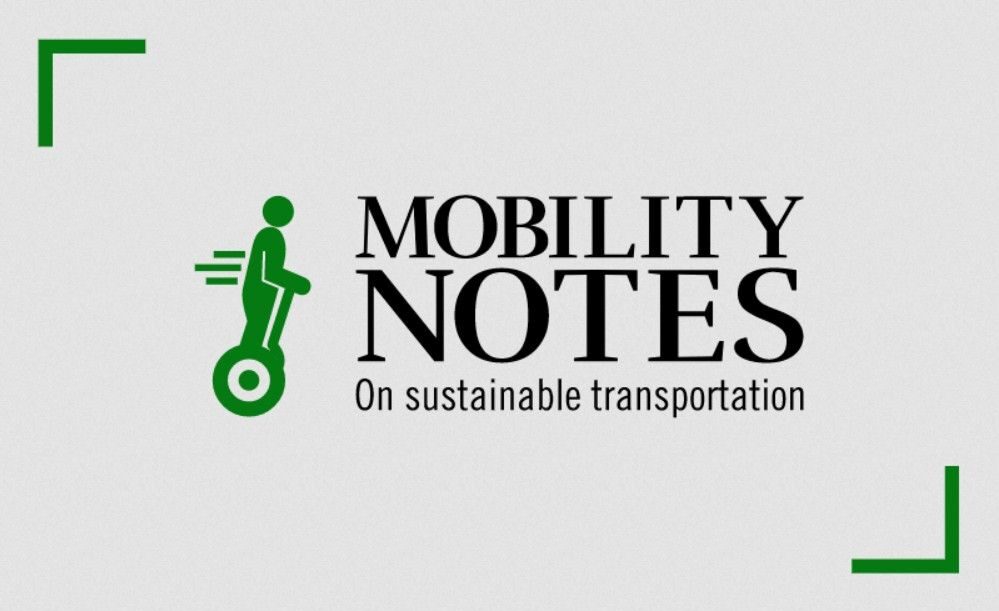The world's first all-electric compact loader commercialized

Bobcat introduces the all-electric T7X
At the 2022 CES, Bobcat introduced the world’s first commercial all-electric compact track loader. In the non-road equipment, electrification typically refers to physical movement while the actual working elements are powered using hydraulics. The Bobcat T7X is however a truly full electric in that even the working parts are powered using motors and actuators. Here’s a link to the CES video.
The battery is 62 kW and provides up to 4 hours of continuous operation (so presumably the pack is 248 kWh). Electric operation allows energy to be used and delivered only for active work (no idling, bringing hydraulic pumps to speed, etc). The electric version uses only one quart of coolant as compared to 57 gallons of diesel fuel and hydraulic oil in the diesel counterpart, boasts no tailpipe emissions and also is touted to be much quieter, an advantage when used in residential areas.
Implications
Compared to passenger cars and even medium duty trucks, electrification of the non-road heavy equipment is in its early days. The barriers are perhaps obvious – the very highly demanding and transient work / torque requirements, the broad range of applications for these equipment and the inherent challenge of charging at the remote and decentralized locations where they operate.
Currently, there are no regulations anywhere in the world which require mandatory sales of electric equipment but the emissions from the off-road sector are getting attention. For “small off-road equipment or SORE, California requires 100% electrics by 2024, but those are smaller machinery, think lawn mowers and leaf blowers. California is also beginning to formulate a low NOx regulation for off-road diesels, perhaps requiring a 90% reduction in NOx similar to the on-road regulation.
How quickly and will electric equipment take market share ? Not easy to predict at this point. Brings to mind a relevant study by Prof. Clayton Christensen in his book The Innovator’s Dilemma, where he discusses how hydraulic excavators initially offered very small bucket sizes but had some advantages in a niche segment and eventually became the dominant technology. Electric machinery has advantages no doubt and while they may be expensive and impractical today, perhaps could reinvent the industry.
If you like such content, check out the monthly newsletter covering the latest on sustainable transportation technologies and regulations. Sign up below.
Like it ? Share it !
Other recent posts
Conference Summary – SAE WCX 2025
![]()
A summary of the “SAE WCX 2025” conference held in Detroit.
IRENA Renewable Energy Capacity Statistics 2025
![]()
According to the latest report from IRENA, 2024 saw the largest increase in renewable capacity, accounting for 92.5% of overall power additions.
CO2 Emissions Performance of Heavy-Duty Vehicles in Europe – 2022 Results
![]()
The European Commission has published the official 2022 CO2 emission results for heavy-duty vehicles. Many OEMs are ahead of the targets and have gained credits, while others have their work cut out as we approach the 2025 target.


